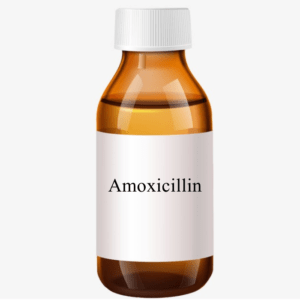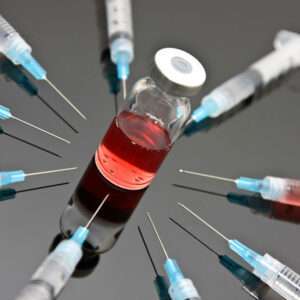Description
Lincomycin: Uses Doses and Side Effect
Lincomycin is an antibiotic that fights against severe bacterial infections. It can be used to treat people who cannot use penicillin antibiotics, and should only ever be used if a person has been diagnosed with one of these types of bacteria. Taking lincomycin will not help someone fight off the common cold or flu virus- it works exclusively on those really serious illnesses where you have to get admitted into the hospital because there’s no other option left for treatment.
Warnings:
Antibiotics are used to treat bacterial infections, but they can also cause a condition where the intestines become overrun with normally harmless bacteria. This overgrowth often results in diarrhea that may last for weeks after treatment has ended and sometimes even months into recovery. If you experience intestinal discomfort while taking or shortly after finishing antibiotic therapy, call your doctor at once as this could be an indication of infection from harmful gut flora.
Before taking Lincomycin:
Antibiotics can cause an overgrowth of bacteria in the intestines that will lead to diarrhea. This is a common side effect and it may not go away for months after your last antibiotic dose, so call your doctor at the first sign of any watery or bloody diarrhea during and shortly after treatment with lincomycin. If you have this symptom please stop taking lincomycin immediately before calling 911 because stopping antidiarrheal medicine could make things worse; instead, wait until speaking to your physician about what they recommend doing next!
How lincomycin gave to patients:
Lincomycin is injected into or as an infusion in a vein. The first dose, and possibly future doses, will be administered by your healthcare provider with their supervision while you’re learning how to properly administer the medication on your own.
When given intravenously (IV), lincomycin must be taken slowly over 60 minutes. Unlike oral ingestion of liquid medications that can take effect within 30-60 minutes depending on dosage size; IV administration takes time because it’s being pumped directly into the bloodstream through veins which require more time for absorption than when taking pills orally due to stomach acids breaking down certain drugs before they are absorbed by tissues throughout our body. This also means should there ever come a need where someone needs immediate treatment.
Side effects OF Lincomycin:
Antibiotic medicine can cause an overgrowth of normally harmless bacteria in the intestines, which leads to a life-threatening infection. If left untreated this condition could lead to severe diarrhea or even death months after your last antibiotic dose. Get emergency medical help if you have signs of an allergic reaction (hives, difficult breathing, swelling in your face or throat) and/or show symptoms such as fever; sore throat; burning eyes; skin pain with redness or purple blotches that look like blisters peeling off the skin around any exposed areas on hands feet arms legs, etc.; joint pain especially in fingers wrists knees hips ankles elbows toes feet soles
And palms); headache dizziness chills weakness nausea vomiting chest tightness short breath cough.
Call your doctor at once if you have:
severe stomach pain, diarrhea that is watery or bloody (even if it occurs months after your last dose); little or no urination; blisters or ulcers in your mouth, red or swollen gums, trouble swallowing; jaundice (yellowing of the skin and eyes); low blood cell counts fever, chills tiredness sores unusual bleeding.
Dosage Forms & Strengths
injectable solution
- 300mg/mL
Susceptible Infections
IM: 600 mg q12-24hr
IV: 600-1000 mg q8-12hr; not to exceed 8 g/day
Renal Impairment, severe: 25-30% of usual dose










Reviews
There are no reviews yet.